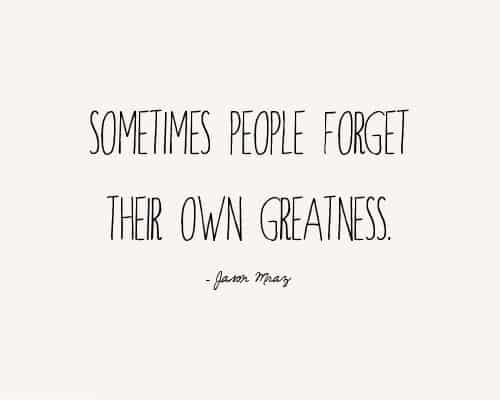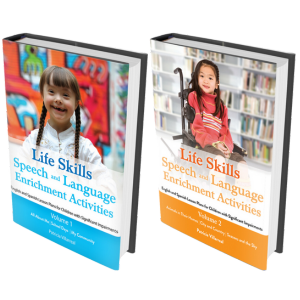
They were looking at the big picture for their son. They wanted him to start working on functional skills that would contribute to his quality of life as an adult. To be honest, they were on the right track.
Let’s talk about transitioning and futures planning for speech and language goals.
What’s this all about?
- It’s about creating a meaningful adult life for the child–right now.
- It’s about giving the child self-determination skills, the skills needed to direct one’s own future and needs.
And, truth be told;
Individuals with Disabilities Education Act (IDEA)
In most states, the Individuals with Disabilities Education Act (IDEA) mandates a public education for all eligible children ages 3 through 21. An important part of this goal is preparing the child for independent living and employment. Since IDEA requirements are facilitated through Individual Education Plans (IEPs), special education teams start planning for transition to adulthood at age 16–ideally, this process should begin at 14 years of age or younger.
Recently, I spoke to Rosemary Alexander, the Pathways to Adulthood Transition Team Coordinator at Texas Parent-to-Parent. Rosemary coordinates the Transition Program for families of youth and young adults and provides parent support. Rosemary and her husband, Bill, have two grown sons, and the oldest has multiple disabilities. When asked what worries parents the most, she stated,
Thinking about the future versions of our clients and students.
There are four domains of life that needs to be addressed when thinking about futures planning. They are:
- School (Post Secondary Education): – Will he be going to school? How will the campus accommodate for his eligibility?
- Employment: Where will he work? How will he be supported at work?
- Home/Independent Living: Where will he live? Will he need support in the living facility
- Community/Recreation: What does he like to do for fun? Who are members of his social network?
Implementation of functional goals
As we work with preschoolers and school-age children, we need to start asking these questions. Keeping the big picture in mind will result in implementation of functional goals that will make an important impact on the child’s quality of life as an adult. So, what are the specific goals and objectives we need to tackle in order to answer the questions posted above? Carol Huntley is the Transition Specialist for the Round Rock Independent School District. She states that starting at the elementary school level, parents can start addressing work related tasks such as completing chores at home and learning about how money is earned. She also talks about the importance of talking to your student and client about his strengths and challenges–knowing about your disability is a big part of advocating for yourself.
Key skills for addressing self-management:
- Functional Communication – Can he communicate with those around him?
- Personal Mobility – Can he get from one place to the next independently or with support?
- Seeking Assistance – Can he ask for help when needed?
- Self-Checking, Self-Control – Can he manage and regulate his own behavior.
- Appropriate Clothing and Hygiene – Does he understand the importance of hygiene and appearance. And, can he manage his own appearance and hygiene?
 In the Year 2000!
In the Year 2000!
As an SLP, it would make sense to work on a student’s functional communication and seeking assistance goals right now. For my preschoolers, it would be functional to tackle an objective related to asking for help. For my elementary-age students, I need to find ways for them to use their everyday communication skills in a functional way. Years ago, late night host and comedian, Conan O’Brian had a sketch called “In the Year 2000,” in which he discussed future events. In that spirit, let’s start thinking about our children’s future and begin addressing important life goals starting today.
Great additional resources shared by other professionals
Hobbies and Activities for Special Needs
Planning for the Future for Seniors with Special Needs
Teaching the Art of Cooking to People with Disabilities
Assistive Technology Buying Guide
Home Modifications for Young Adults with Special Needs
Should They Stay or Should They Go: Selling a Home with Modifications
Resources for Traveling with Disabilities
Legal Guide for Newly Disabled Seniors
How to Make Flying With Physical Disabilities Less Stressful: A Fully Accessible Guide


 In the Year 2000!
In the Year 2000!

great food for thought! ~Keith